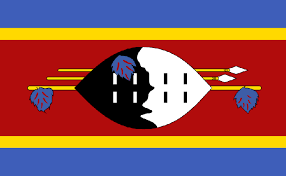Language/Swati/Grammar/Plurals
Hi Swati learners! 😊
In this lesson, we will learn about plurals in Swati. Plurals are important because they help us identify more than one subject or object. For example, instead of saying "The cow is eating grass", we can say "The cows are eating grass". Plurals may seem simple at first, but they can be quite complicated depending on the noun we use. But don't worry, we'll take it step by step. By the end of this lesson, you'll be able to use plurals correctly in Swati. Let's get started!
Take a moment to explore these relevant pages as you conclude this lesson: Pronouns, Questions & Give your Opinion.
What are plurals?[edit | edit source]
Plurals are words that refer to more than one person, animal, place, or thing. In Swati, we have different rules for creating plurals depending on the noun. Some nouns are plural by nature (like "amadoda", which means "men"), others remain unchanged in the plural form (like "indlu", which means "house"), while others change completely (like "inkomo", which means "cow", and becomes "emakomo" in the plural form).
To create plurals, we use several methods: adding a suffix, changing the prefix, changing the root vowel, or irregular changes. Let's see some examples.
Plurals by adding a suffix[edit | edit source]
Some Swati nouns form the plural by adding a suffix, usually "-ma". Here are some examples:
| Swati | Pronunciation | English | |||
|---|---|---|---|---|---|
| umntwana | [umnt͡ʃwáːna] | child | abantwana | [abant͡ʃwáːna] | children |
| ingane | [iŋáːne] | infant | imigane | [imigaːne] | infants |
| isifuba | [isifúːba] | lung | izifuba | [izifúːba] | lungs |
Can you see how the suffix "-ma" is added to the singular noun to make it plural?
Plurals by changing the prefix[edit | edit source]
Other Swati nouns form the plural by changing the prefix. The most common prefix for forming the plural is "aba-". Here are some examples:
| Swati | Pronunciation | English | |||
|---|---|---|---|---|---|
| umfana | [umfáːna] | boy | abafana | [abafáːna] | boys |
| indoda | [indóːda] | man | abadoda | [abadóːda] | men |
| udla | [úːd͡ɮa] | to eat | abadla | [abad͡ɮáː] | to eat (plural) |
See how the prefix "aba-" is added to the singular noun to make it plural?
Plurals by changing the root vowel[edit | edit source]
Some Swati nouns form the plural by changing the root vowel. Here are some examples:
| Swati | Pronunciation | English | |||
|---|---|---|---|---|---|
| umuntu | [umúntu] | person | abantu | [abantu] | people |
| inyoni | [iɲɔ́ːni] | bird | amanyoni | [amanjɔ́ːni] | birds |
| inkomo | [iŋkómɔ] | cow | emakomo | [ɛmakómɔ] | cows |
Can you see how the root vowels "u", "o", "e" are changed to "a" in the plural form?
Irregular plural forms[edit | edit source]
Finally, some Swati nouns have irregular plural forms, which means they don't follow any of the previous rules. Here are some examples:
| Swati | Pronunciation | English | |||
|---|---|---|---|---|---|
| umkhukhu | [umxúxu] | chicken | imikhukhu | [imixúxu] | chickens |
| igwinya | [iɡwíɲa] | doughnut-like pastry | magwinya | [maɡwíɲa] | doughnuts |
| imbuzi | [imbuːzi] | goat | eemabuzi | [ɛːmaᵐbuːzi] | goats (Note: prefix "ee-" indicates plural form) |
As you can see, the plural forms of these nouns don't follow any specific rule but need to be memorized.
Examples in dialogue[edit | edit source]
Let's see some examples of plurals in dialogue:
- Person 1: Ngitsi bavakashela emndenini? (Have you seen them playing in the street?)
- Person 2: Yes, baningi labantu labachithiza emndenini. (Yes, there were many people shouting in the street.)
- Person 1: Uqala lula ukulima amabele? (Are you starting to plant the crops?)
- Person 2: Yes, sikhuluma ngezinkomo eziningi. (Yes, we're talking about many cows. )
Practice[edit | edit source]
Now it's your turn to practice forming plurals in Swati. Take any of the Swati nouns you know, and try to form the plural using the methods we've seen in this lesson. You can also find other examples in Swati speakers and ask them any questions you have!
Conclusion[edit | edit source]
In summary, plurals are words that refer to more than one person, animal, place, or thing. In Swati, we have different rules for creating plurals, including adding a suffix, changing the prefix, changing the root vowel, or irregular changes. Pay attention to these rules so you can use plurals correctly in Swati.
To improve your Swati Grammar, you can also use the Polyglot Club website. Find native speakers and ask them any questions!
Sources[edit | edit source]
With this lesson finished, you may want to explore these additional pages: Say Hello and Greetings in Swati, Negation & How to Use Have.
Other Lessons[edit | edit source]
- Future Tense
- How to Use Have
- How to Use Be
- Questions
- Pronouns
- Conditional Mood
- Give your Opinion
- Adjectives
- Negation

